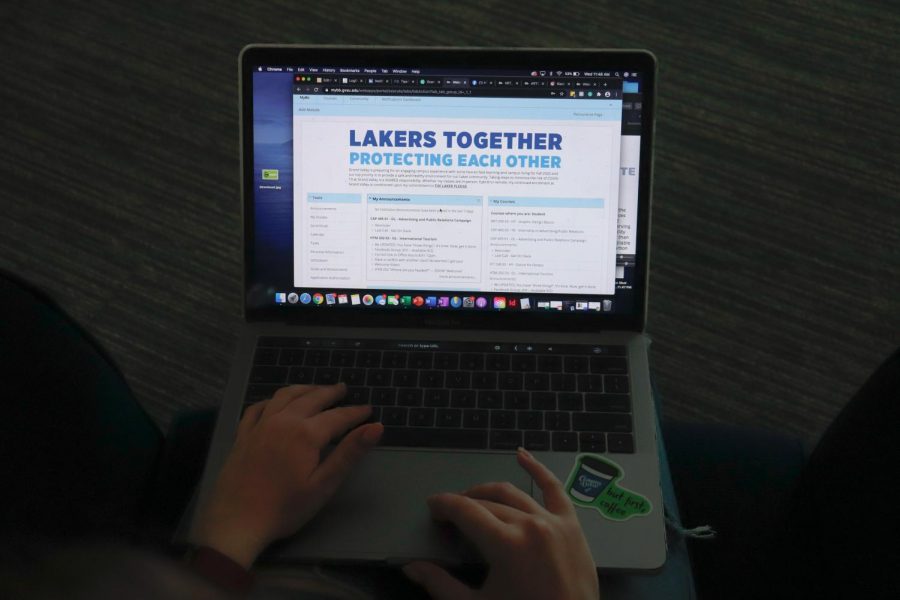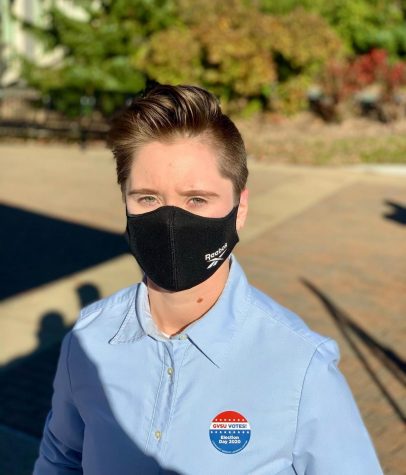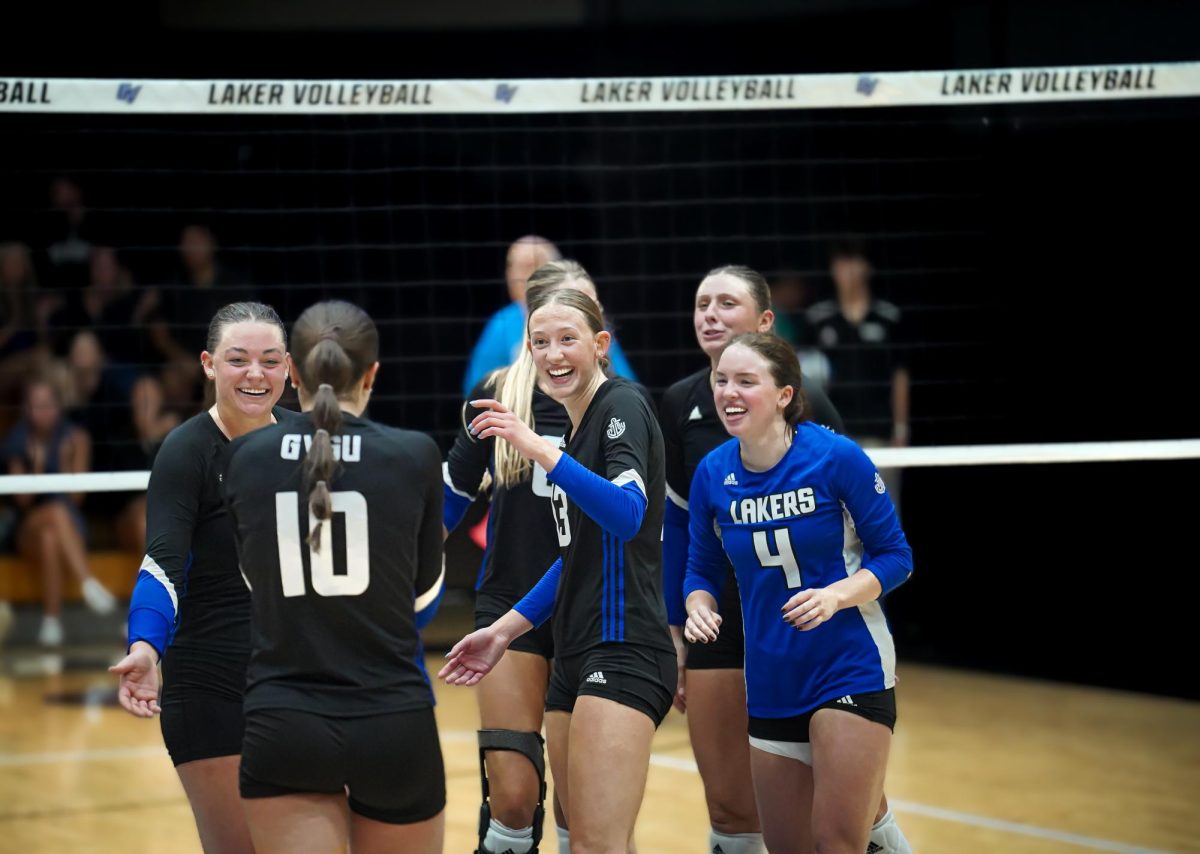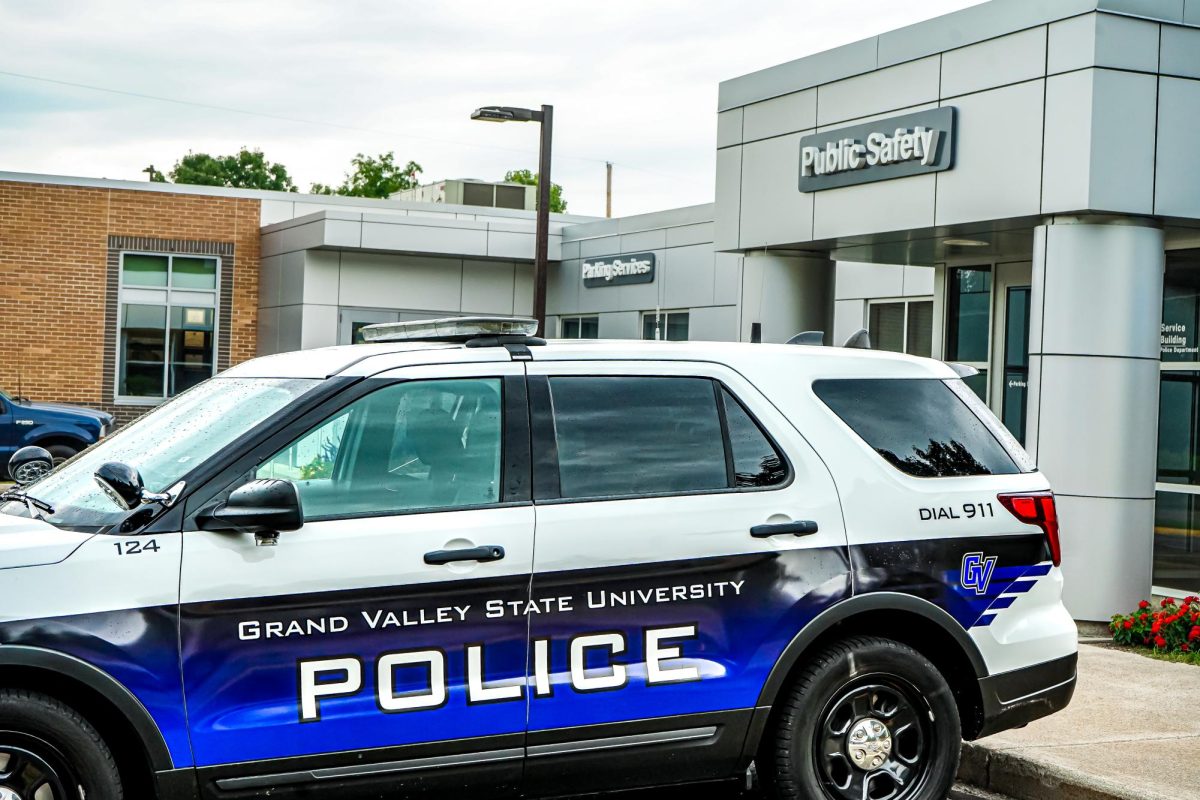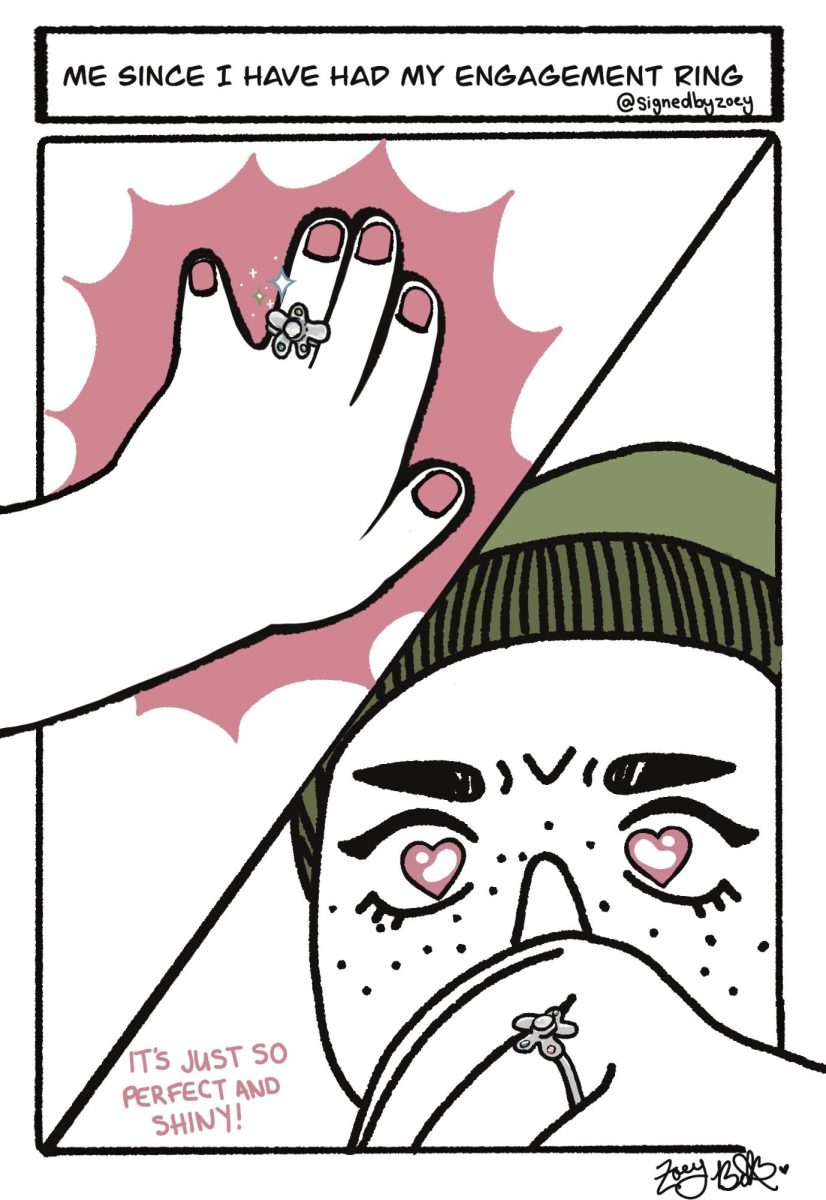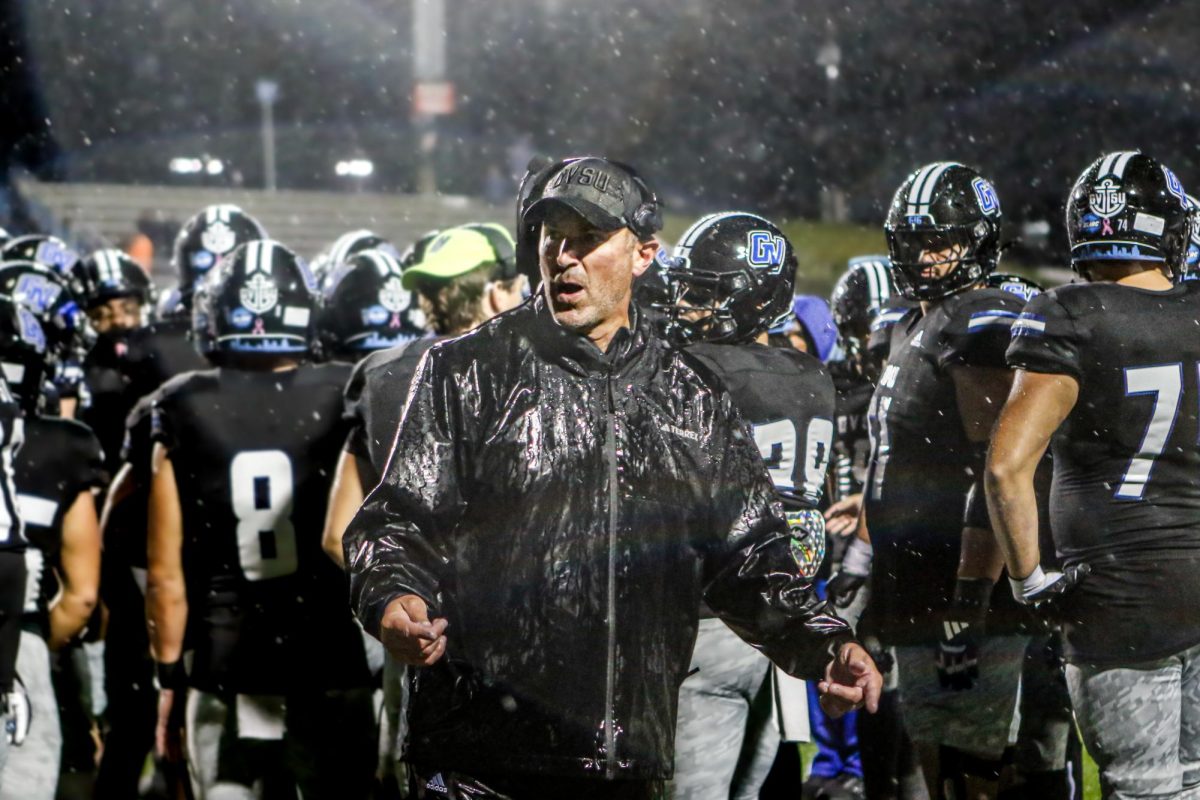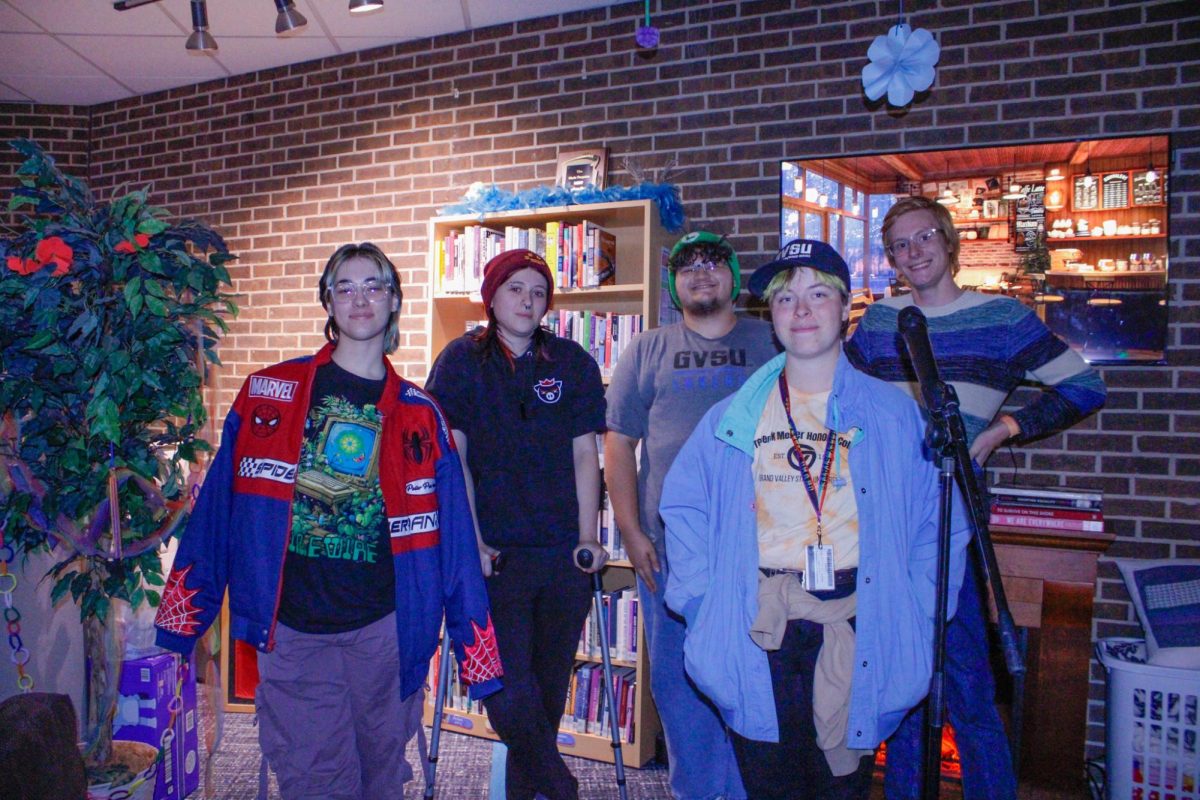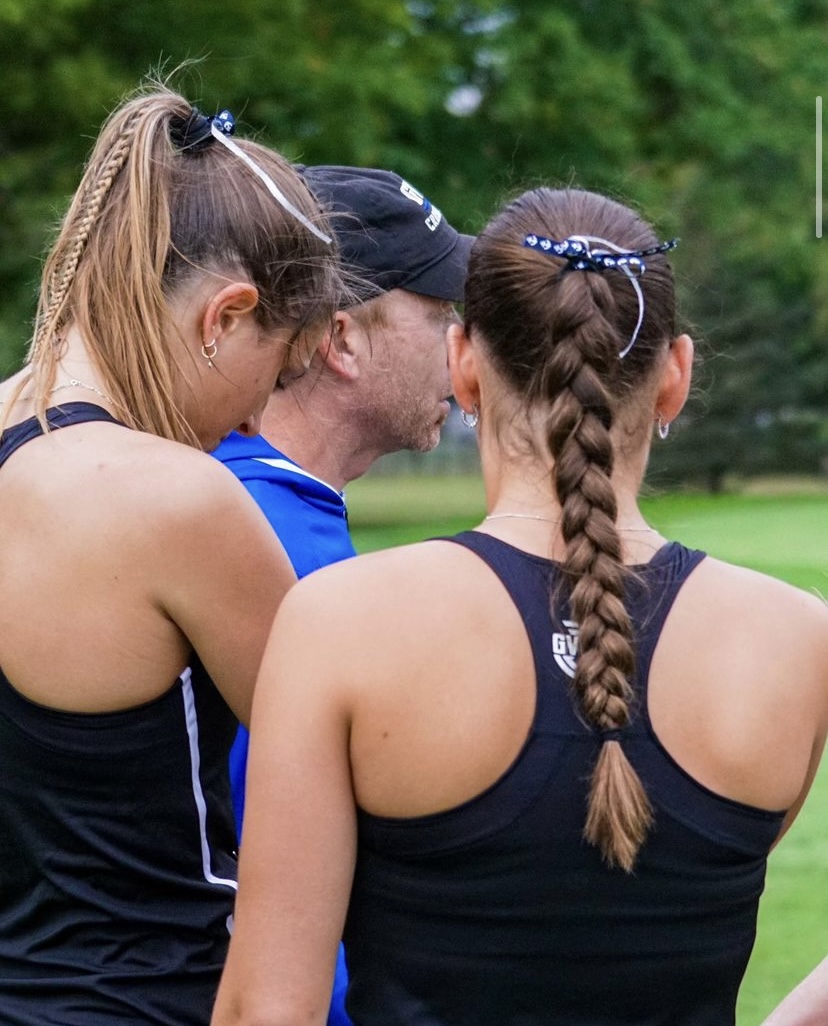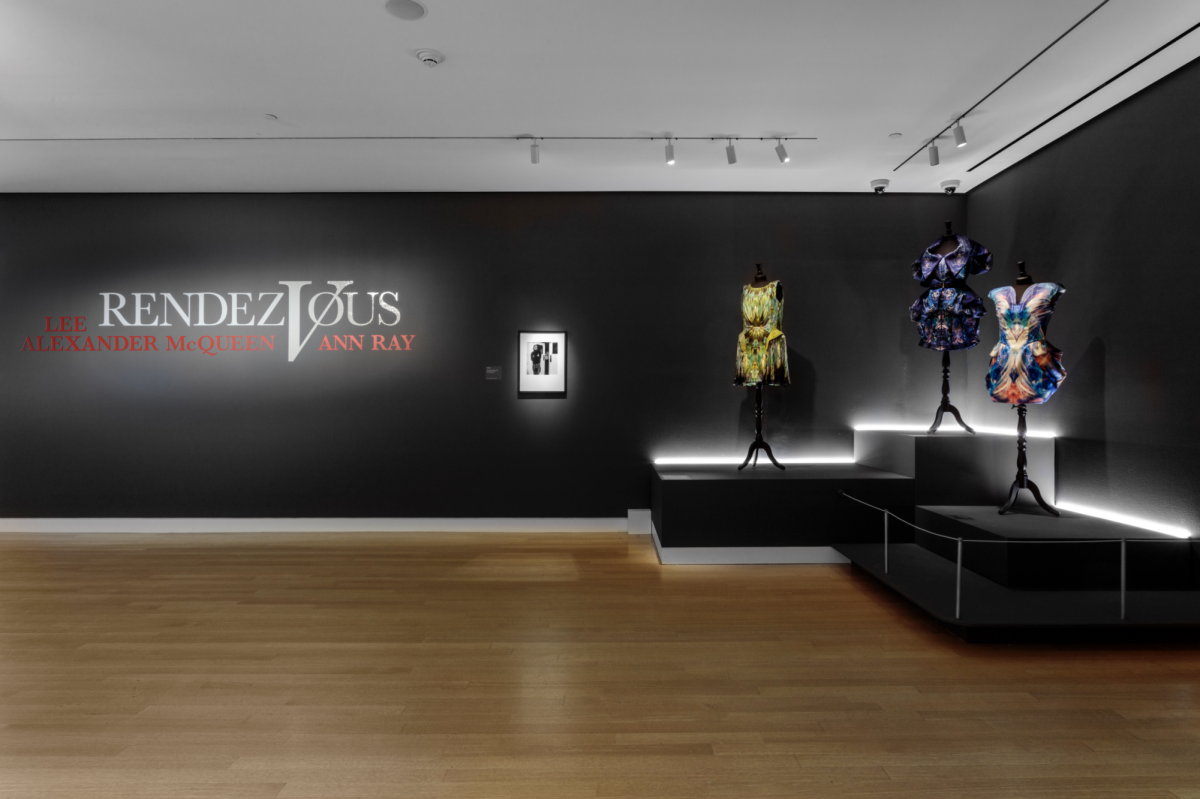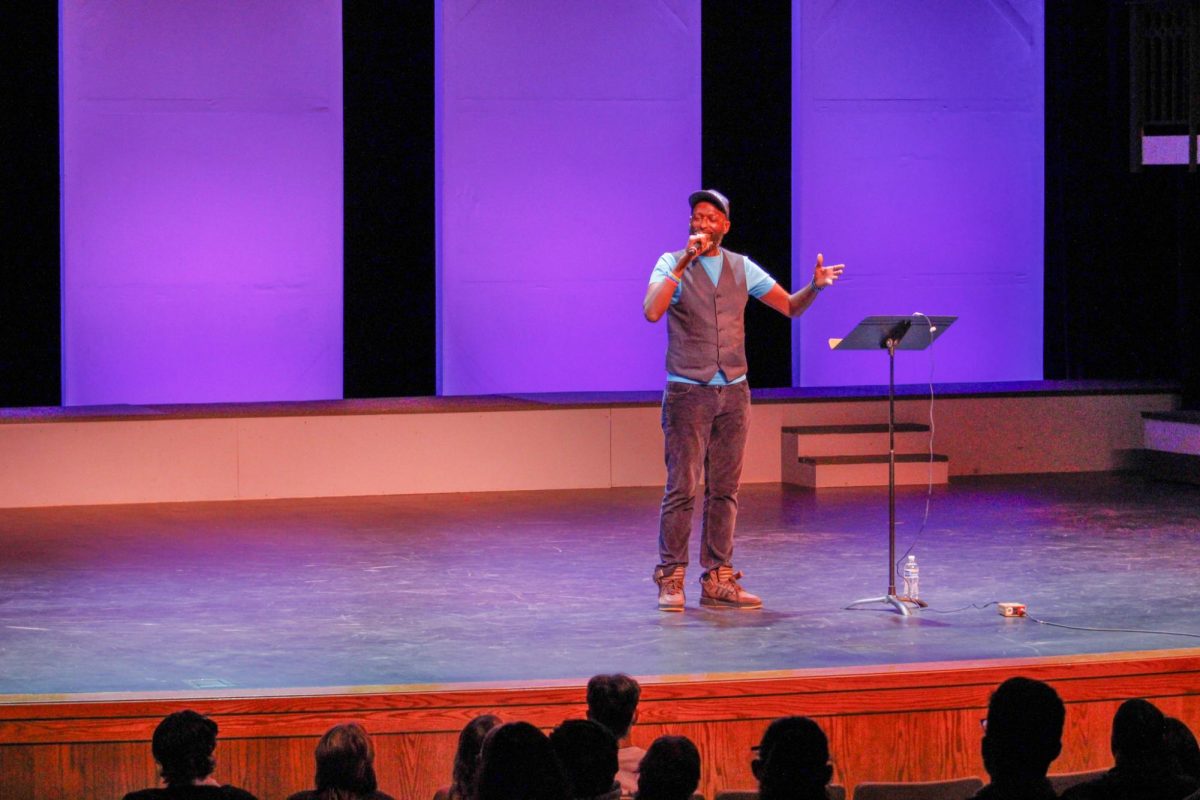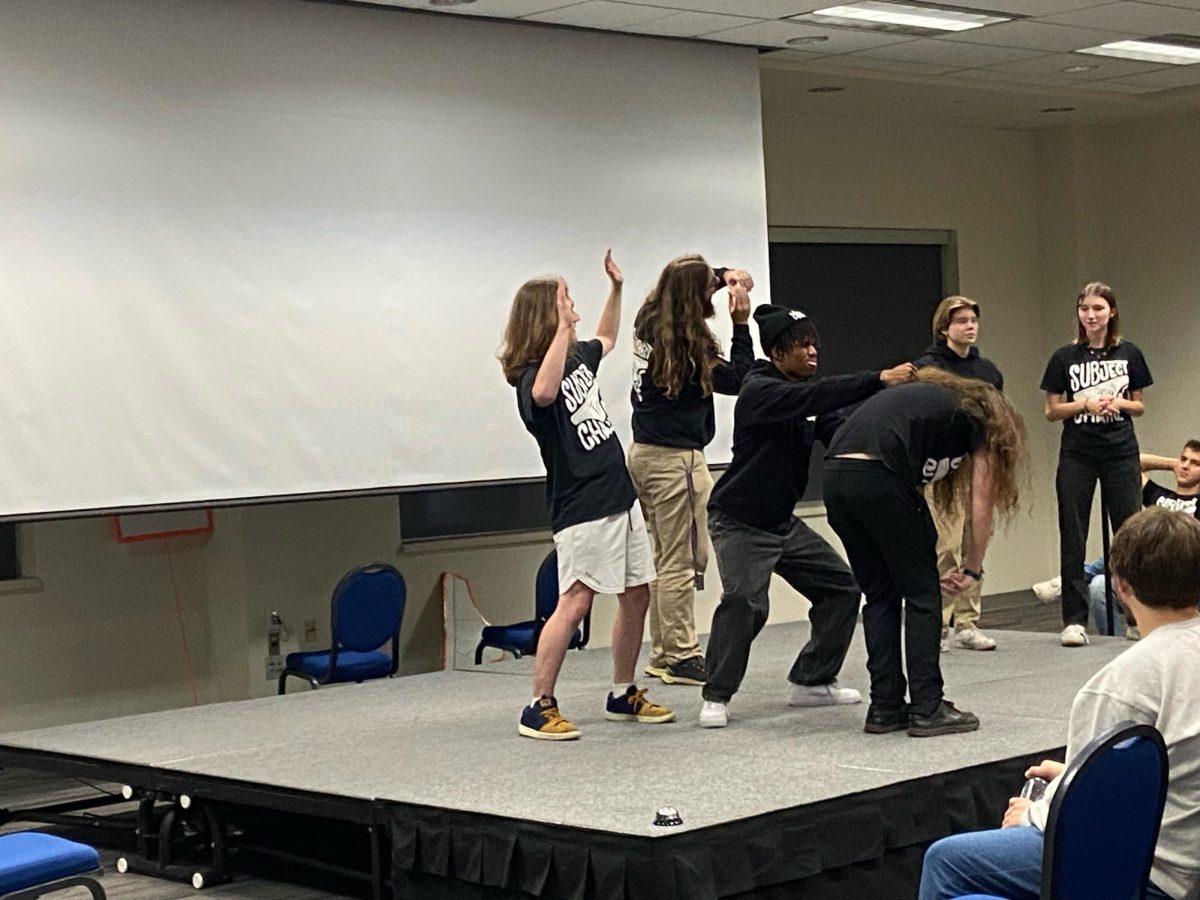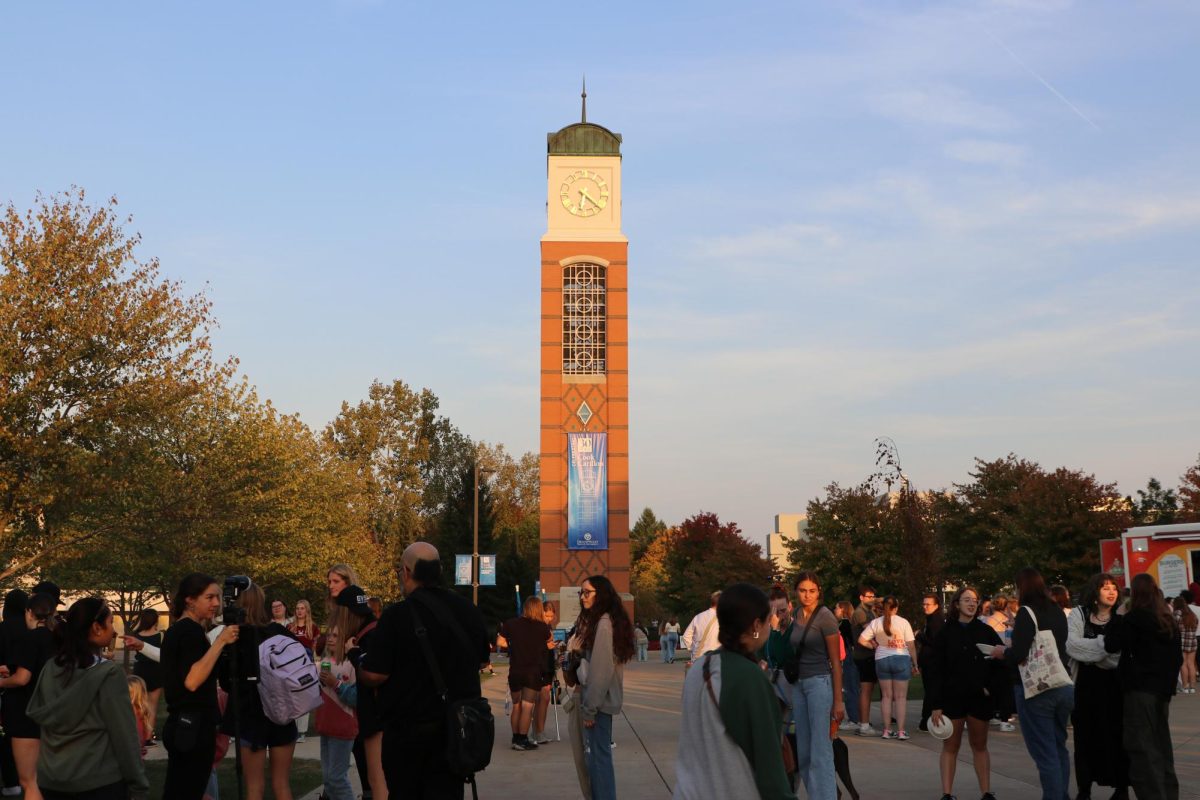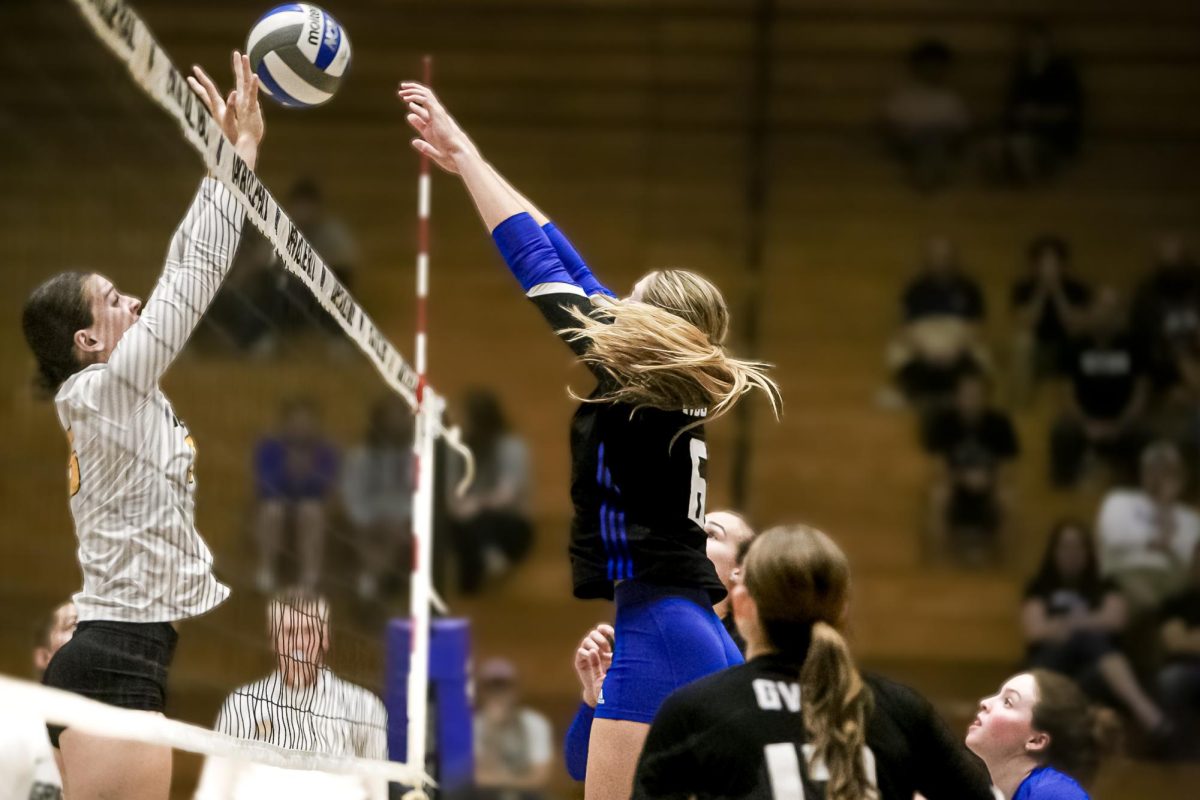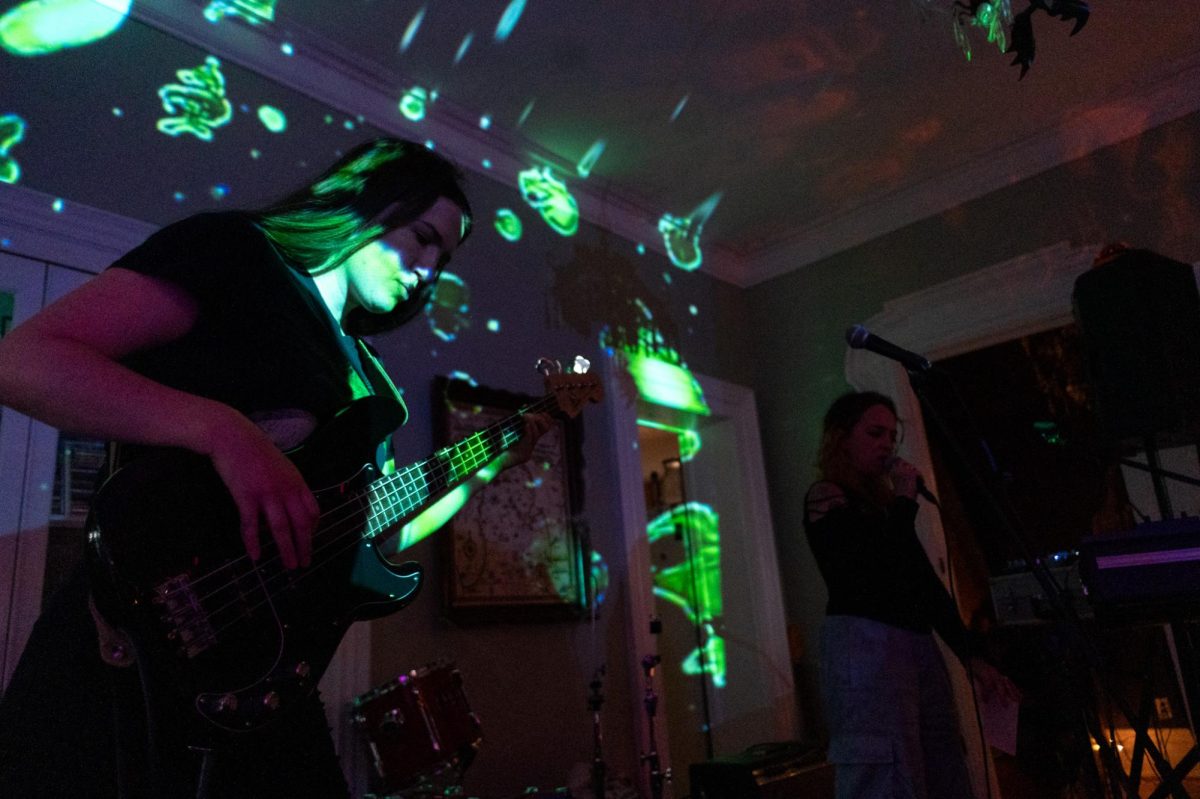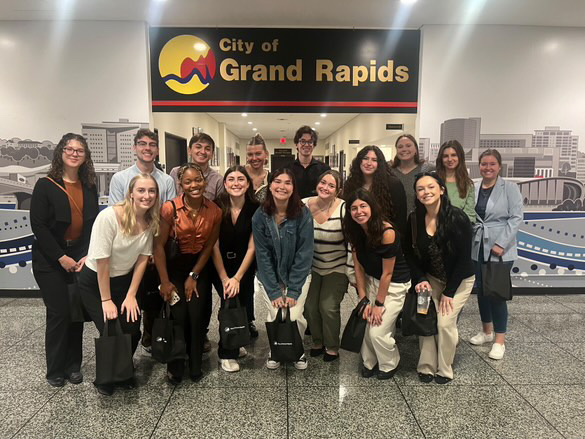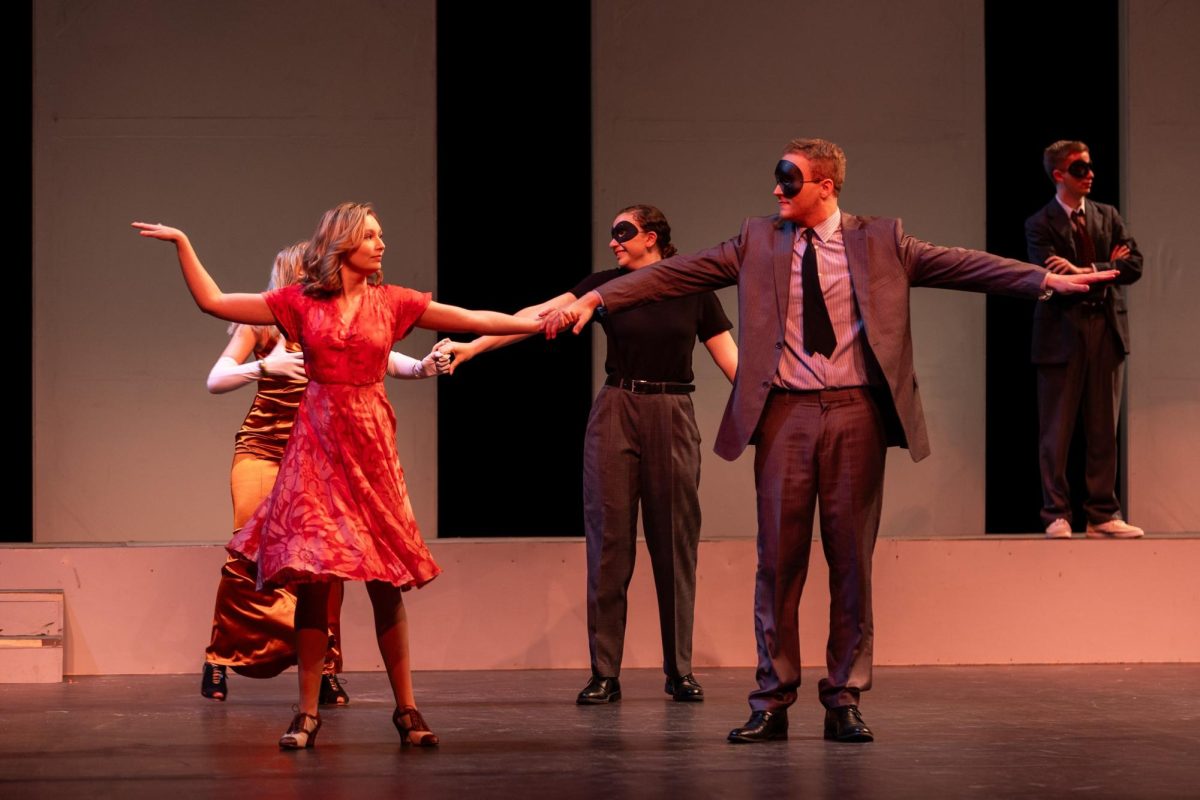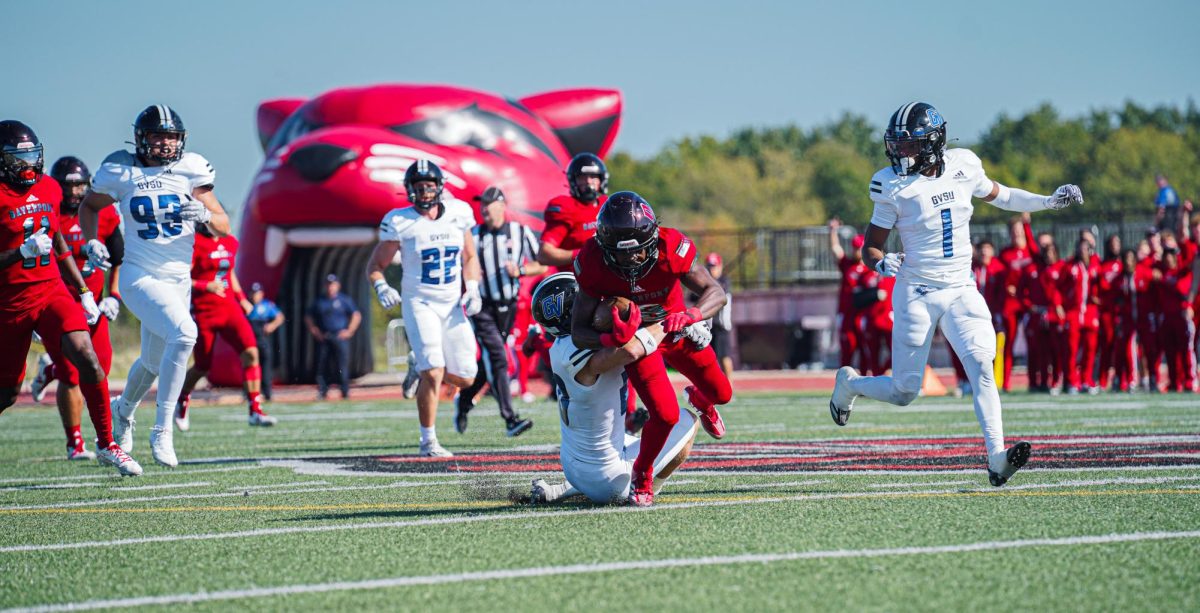University affiliate open letter to Gov. Whitmer calls for more online class instruction
Sep 14, 2020
With rising cases of coronavirus across campuses in Michigan, an open letter penned to Governor Gretchen Whitmer calls for her to push for universities to provide more online options for classes during the pandemic.
The letter, in its online form, was created following universities across the state taking further precautions against the virus. On Aug. 18, Michigan State University was the first university in Michigan to transfer over to a completely remote online format for its students after COVID-19 cluster outbreaks were discovered on their campus.
With Grand Valley State University now leading in reported case numbers on campus with just over 460 cases since Sept. 11, university leaders are now facing more pressure than ever to do more and consider going exclusively online.
The open letter also mentions the closure of the University of North Carolina at Chapel Hill following COVID-19 cases rising on their campus as a major example of why universities are perfect “breeding grounds” for the deadly virus.
“We are asking you to step in — either to move most university classes online (except those whose pedagogies absolutely will not work online) or to offer clear regulations about how in-person standards must be maintained and what situations must trigger a return to primarily online learning,” the letter reads. “While the COVID-19 situation has been improving in some parts of Michigan, we have reached the point where what state universities do in the next few weeks will dramatically impact whether things continue to improve or whether the gains made will be quickly and irretrievably lost.”
The nearly 300-word appeal to the Governor includes calls for help with managing not only the virus’ spread on campuses, but also to help mitigate with the additional costs that the pandemic’s devastation may incur for universities around the state.
Since its publication, the letter has over 350 signatories from faculty, staff, students, alumni and families of universities across the state. The 11 universities represented in the letter include GVSU, MSU, Central Michigan University, Saginaw Valley State University, Aquinas, Kendall College of Art & Design, Northern Michigan University, Western Michigan University and Ferris State University.
Many signatories of the letter named themselves as affiliates of GVSU.
John Gabrosek, a statistics professor at GVSU, said that he signed the letter because he believes that with the Governor’s intervention, higher education institutions will be able to get more help and attention from the state in terms of COVID-19 relief.
“The Governor has been a steadfast leader throughout this crisis,” Gabrosek said. “Financial stakes are high for institutions of higher learning, which is why the Governor should step in – her decision can open up financial assistance to universities and colleges, perhaps low interest loans. We know masks and distancing help, but they’re not perfect solutions. As universities throughout the country, and in Michigan, return to campus, clusters of cases are occurring.”
At GVSU, there are only three confirmed faculty cases and two confirmed staff COVID-cases as of Sept. 11, but there is worry that keeping campus open, and especially continuing online instruction, will lead to cases rising even faster.
Along with on-campus spread, the highest number of COVID-19 cases at GVSU are from students living “off or near campus.” Because of this, the main concern is that travel and interaction between students ignoring taking precautions off-campus will soon spread cases for on-campus students who choose to visit off-campus locations.
Samhita Rhodes, professor and Chair of Biomedical Engineering at GVSU’s Padnos College of Engineering and Computing, said that her worries stem from those not taking precautions, and that it kills her not to be in a classroom but that being safe, for her, is better than being sorry.
“I’m not going to lie, I love in-class teaching, and when this is all over I’m going to be running towards a classroom where I can see my students and see their faces and watch them respond in real time – online is not my comfort zone,” Rhodes said. “My primary reasoning for signing the open letter was the safety of the students on campus and our commuter students who go back to their families each day, the safety of my colleagues who are in the at-risk demographics, and safety of my own family. I also felt that we had examples of universities that have opened and then had to close because you can’t control behavior no matter how many policies and rules you put in.”
For some university departments, switching to an online educational format is an easier job and requires less adjustment for student learning. For some, though, the transition and attempt to move online just isn’t feasible considering some of the instruction types and educational tools used in classes aren’t formatted to fit the internet.
For educators in the medical fields, like Amy McFarland, a professor in the honors and environmental studies programs at GVSU, the challenge comes with aiding people in getting licensed and providing specialized training sessions for current and future healthcare workers, all of which simply cannot be done online. Much of the science and health material are interconnected at GVSU.
“I’d like to emphasize that one of our main objectives is to prevent as much mid-semester disruption to students as possible – particularly those in programs that have to have face to face classes, simulations and clinicals to get licensed, like nursing and physical therapy,” McFarland said. “When we have to shut-down due to too many cases of COVID-19 identified on campus, it would be disastrous for those students.”
GVSU employs thousands of staff across campus, and many of them are students. For those who are working a job on campus on top of attending classes, the fear of COVID-19 is a daily threat. While some have been happy with GVSU’s response to the virus, some campus employees have chosen to anonymously speak out about the lack of protection and advocacy they have felt on campus.
“I don’t believe that our administration of GVSU is not following suit and safety precautions during this pandemic,” a maintenance worker/student said. “It isn’t fair to say that GVSU is the ‘exception’ while ignoring the voices of faculty, staff, and students during this time. In the department that I am in, it would greatly impact my work along with the positions of my coworkers due to lack of work if there aren’t students on campus/areas not being used. But as a student I don’t think using technology is too much of a struggle, many younger generations are able to utilize online tools for success. I don’t see it as a problem for myself, I am adaptable and so are the other students.”
As GVSU’s case numbers continue to rise, the pressure on the university is greater than ever to provide for its students. For many faculty, the difficulty of adapting to online teaching is something worth doing for student and staff safety. There can be no doubt that GVSU will see many changes this year during the pandemic, and how the university responds to these challenges will define it for decades to come.
Gabrosek expressed that along with his fear, his faith in his colleagues is what fuels his efforts to adapt, and he is looking forward to a challenging year with a positive attitude. He encouraged students and staff to continue to speak out on what they believe should be done moving forward, and to reach out if they are struggling with the new changes.
“There will be glitches; we won’t be perfect, but face-to-face instruction has glitches and imperfections, and I want my students to know that I have invested hundreds of hours in training and preparation for teaching content online this fall,” Gabrosek said. “I have been incredibly impressed at the level of collegiality of faculty as we prepare for the semester, and faculty are sharing ideas, materials, best practices, and emotional support as we ready for fall 2020. The university has already done so much, I’m very proud of that.”



